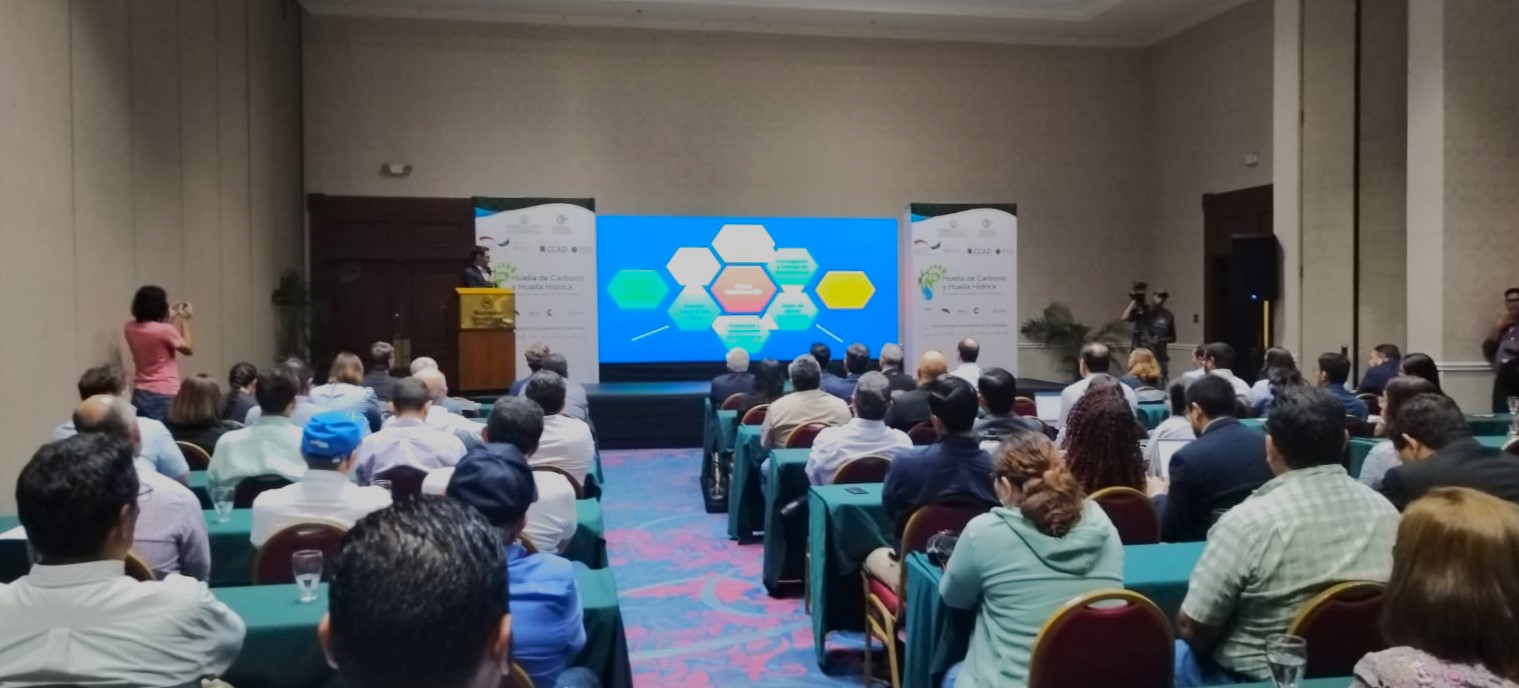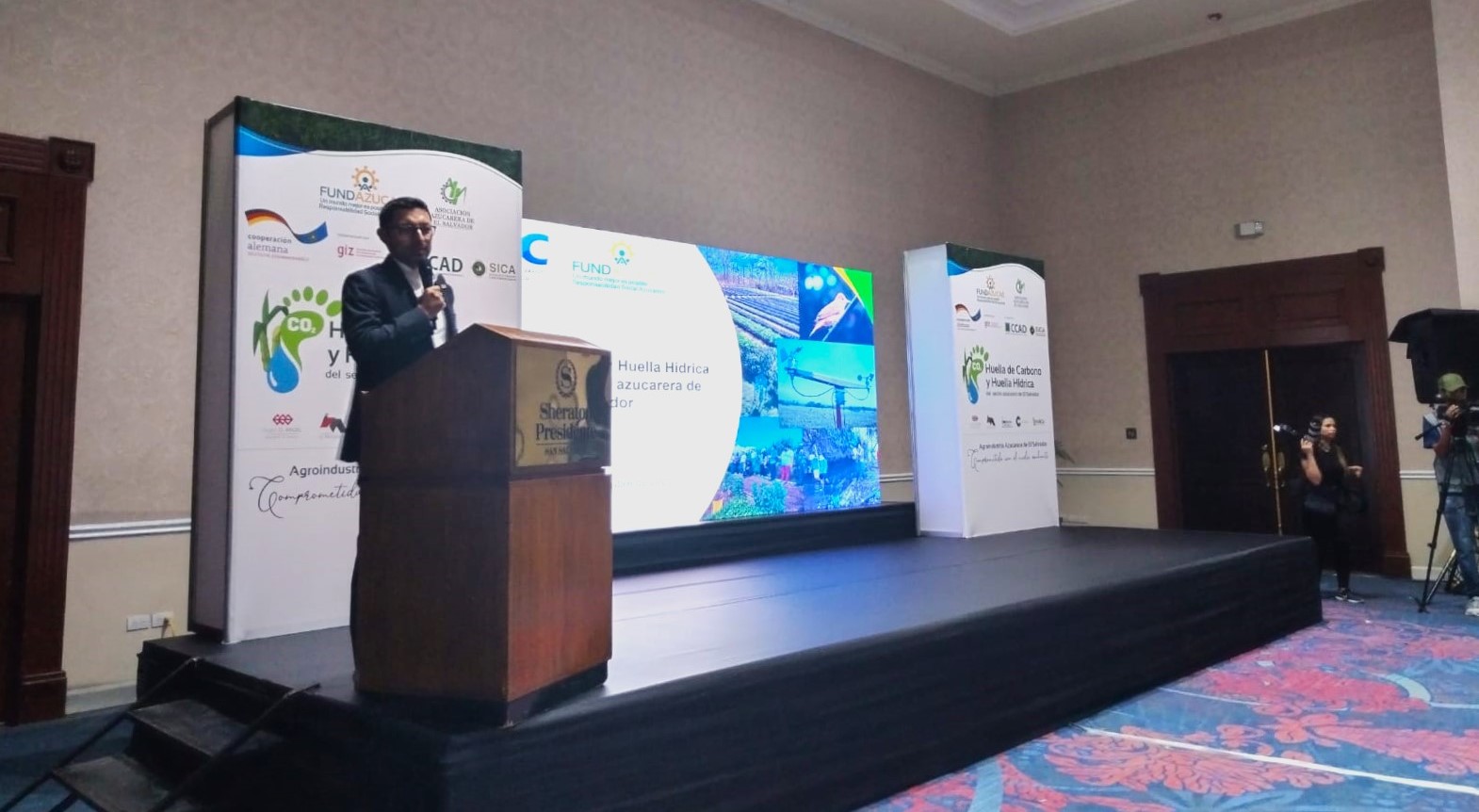The Sugar Association and the Sugar Foundation (FUNDAZUCAR) of El Salvador presented the results of the “Water Footprint and Carbon Footprint of Sugar”, studies developed by the ICC. The results were presented to representatives of Salvadoran Government institutions, International Cooperation organizations, diplomatic corps, and the media, as a contribution to the country’s commitments regarding climate change.
Carbon footprint studies estimate the amount of greenhouse gases (which cause global warming) emitted in the production of some good, while water footprint studies estimate the amount of water used to produce it. Is important to carry out this kind of studies because they are the starting point to know how the sector is doing on climate change related issues and because they are the basis for thinking about strategies to improve environmental performance and adaptation plans to climate change.

The estimated emissions for the sugar sector represent 1.8% of national emissions, so El Salvador sugar has one of the lowest footprints worldwide (0.30 kg of CO2eq per kg of sugar), which is due, among other factors, to the efficiency in the production process, the efficiency in the use of fertilizers and the use of biomass to generate electricity
Studies based on international methodologies that consider agricultural process and industrial process determined that with the use of biomass (a renewable fuel) for the generation of electricity, the sugar sector avoids the emission of more than 1.3 million tons of greenhouse gases to the atmosphere.
On the other hand, it was estimated that 88% of the water used by sugarcane to grow comes from rain. Dr. Alex Guerra, Director of the ICC, commented that on one side results are positive, because it indicates that this process does not depend greatly on the extraction of surface water sources such as rivers and lakes or from ground sources such as well, but that it also gives an idea that the effects of climate change may affect the sector in the future.

“The climate change scenarios for all Central America in the future tell us that there is expected to be less rain and what we are already observing are changes in the rain temporality, sometimes the start of the rainy season is delayed, sometimes there is an “interruption”, this means that is longer and stronger dry days, so the end of the season changes and this can affect the crop,” added Dr. Guerra.
The President of the Sugar Producers Association of El Salvador, Mario Salaverría, assured that “despite the fact that the footprints of sugar production are lower than in many other places in the world” they will not stop looking for routes of improvement in its environmental performance. The preparation of these studies has resulted from a long process of information collection, training, workshops, calculations, and technical-scientific advice provided by the ICC in its role as a strategic ally of the Salvadoran sugar sector.
Office in Mazatenango:
02 avenida, 20 PB Familia, colonia Monte Libano, zona 3 de Mazatenango.
Office in Parramos:
Km 60 carretera a Parramos, Parramos, Chimaltenango
Office in El Salvador:
Sonsonate, El Salvador